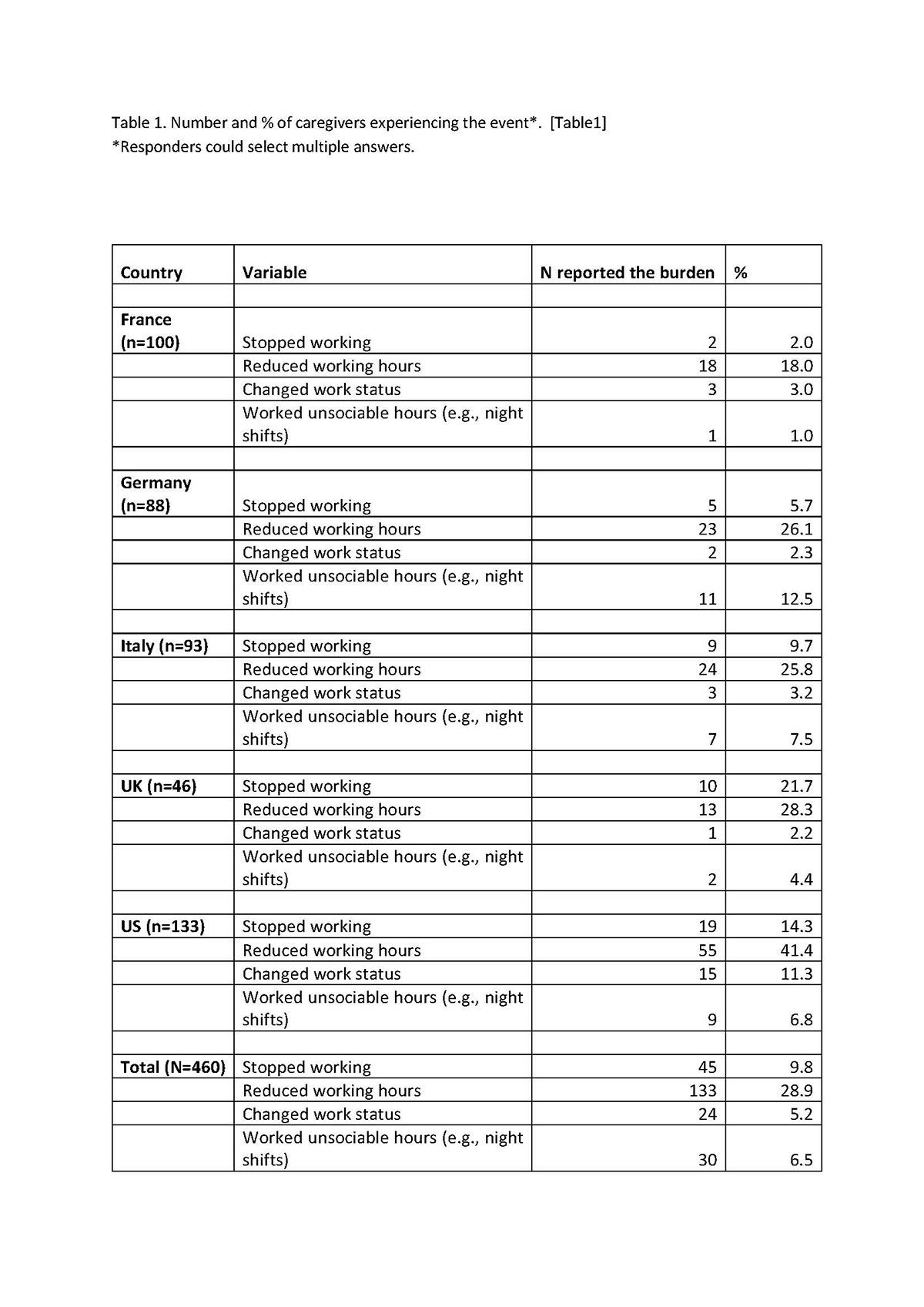Session Information
Date: Monday, September 23, 2019
Session Title: Huntington’s Disease
Session Time: 1:45pm-3:15pm
Location: Agora 3 West, Level 3
Objective: To describe changes in the employment status of family members caring for a person with Huntington’s disease (HD) in the US and Europe.
Background: HD is a genetic, neurodegenerative and ultimately fatal disease that limits independence as the disease progresses. With time, all people with HD require caregiving. Little is known about the impact caregiving has on a family member’s employment status.
Method: This is a retrospective analysis of data from the Adelphi HD Disease Specific Programme, a one-time survey of neurologists and patients in France, Germany, Italy, the UK and the US. Data were collected between July and October 2017. Three questionnaires were created for different audiences: physicians, patients and caregivers. Only a small number of caregivers answered the survey, and so we focus on the physician-reported impact of caregiving for HD on employment status.
Results: Data were collected on 1050 patients from five countries. Rates of caregiving were higher in France (69.4%) and Germany (64.9%), while the lowest rates were reported in the US (39.6%). Overall, 555 (52.9%) patients received care from caregivers who were; professional only (n=68, 12.3%) both professional and non-professional (n=106, 19.1%) or non-professional only (n=378, 68.1%). Among non-professional caregivers, the most common family member to fulfil the role was the partner/spouse (74.3%). Overall, about a quarter (27.4%) of caregivers worked full-time, 22.7% part-time, 22.5% were retired and 20.1% were unemployed/homemakers. Differences were observed between countries: Germany (75.0%) and US (61.0%) reported the highest number of full- or part-time caregivers, whereas UK reported the lowest rate (15.2%). Physician-reported impact of patients’ HD on the caregiver’s work status was evaluated in 82.8% (n=460) of cases. Overall 45.7% (n=210) of caregivers reported a change in work status due to HD (Table 1). Work status changes typically occurred when patients were in Stage 2 or 3 of the Shoulson-Fahn scale.
Conclusion: This study has identified the significant indirect cost of caring for patients with HD. Caregivers are usually close relatives of patients with HD. Caregiving often has a negative impact on the caregiver’s employment status, with severity of impact depending on factors such as HD stage.
To cite this abstract in AMA style:
K. Raimundo, R. Tan, T. To, J. de Courcy, U. Ondhia, H. Rickards, M. Nance. Impact of caring for patients with Huntington’s disease on work status [abstract]. Mov Disord. 2019; 34 (suppl 2). https://www.mdsabstracts.org/abstract/impact-of-caring-for-patients-with-huntingtons-disease-on-work-status/. Accessed December 31, 2025.« Back to 2019 International Congress
MDS Abstracts - https://www.mdsabstracts.org/abstract/impact-of-caring-for-patients-with-huntingtons-disease-on-work-status/

